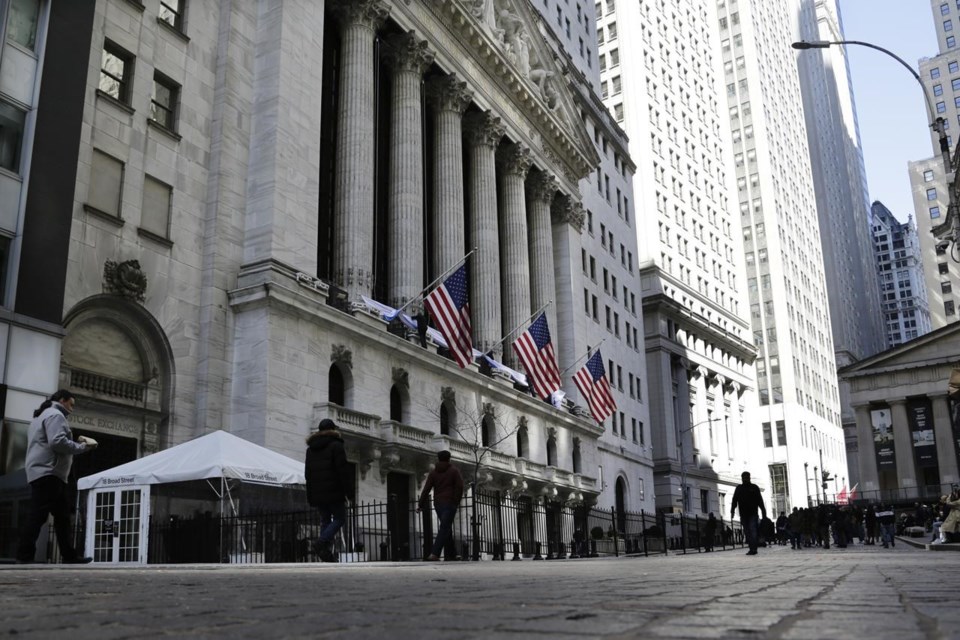TOKYO (AP) — Asian shares mostly rose in cautious trading Friday after Wall Street drifted to a quiet close on worries about a too-hot U.S. job market.
Japan's benchmark Nikkei 225 fell 0.3% to finish at 30,994.67. Australia's S&P/ASX 200 rose 0.4% to 6,954.20. South Korea's Kospi edged up 0.2% to 2,408.73. Hong Kong's Hang Seng jumped 1.4% to 17,449.42.
Markets in China were closed Friday for a holiday and will reopen on Monday.
Shares in Hong Kong jumped on strong buying of property and technology stocks that have seen sharp losses in recent trading sessions. However, troubled property developer China Evergrande's shares were down 6.3%.
A comprehensive report on the overall U.S. job market is due Friday, and economists expect it to show hiring slowed to a pace of 163,000 jobs added in September from 187,000 in August.
Investors worry that too strong a U.S. job market could add to upward pressure on inflation. That’s why the Fed has raised its main interest rate to the highest level since 2001, to intentionally slow the job market.
“The sentiment of unease prevails as the market awaits the release of the U.S. employment report later today,” said Anderson Alves at ActivTrades.
Market attention also remains on oil prices, which have fluctuated recently and will have major effects on how central banks act on interest rates. Chinese markets were closed for a holiday.
The S&P 500 slipped 0.1% to 4,258.19. The Dow Jones Industrial Average edged down less than 0.1% to 33,119.57. The Nasdaq composite dipped 0.1%, to 13,219.83.
Stocks have struggled since the summer under the weight of soaring Treasury yields in the bond market, which undercut stock prices and crimp corporate profits. Yields have leaped as traders acquiesce to a new normal where the Federal Reserve is likely to keep its main interest rate at a high level for a long time, as it tries to extinguish high inflation.
Treasury yields wavered up and down Thursday after a report showed fewer U.S. workers applied for unemployment benefits last week than economists expected. That’s a sign fewer workers are getting laid off than expected, which is normally a good sign.
“Even as the Fed has taken aggressive action to soften labor market conditions, businesses continue to hold on to workers,” said Rubeela Farooqi, chief U.S. economist at High Frequency Economics.
Clorox fell 5.2% after the company described how big a loss it expects to take for its latest quarter because of a previously disclosed cybersecurity attack. The company said its shipments had been in line with its expectations before the attack caused widespread disruptions.
Rivian Automotive sank 22.9% after the electric vehicle maker said it will raise $1.5 billion by selling debt that could later convert into stock.
On the winning side was Lamb Weston, which sells frozen fries, hash browns and other potato products. It jumped 8% after reporting stronger profit for its latest quarter than analysts expected. The company also raised its profit forecast for the fiscal year, saying it’s benefiting after raising prices for its products.
After initially jumping on a strong jobless claims report, the yield on the 10-year Treasury later pulled back. The 10-year yield was at 4.71%, down from 4.73% late Wednesday. Earlier this week, it hit its highest level since 2007.
The 10-year Treasury is the centerpiece of the bond market, and movements in its yield ripple across the entire economy.
A recent pullback in the price of oil has offered some relief on the inflation front for both U.S. households and the Federal Reserve.
U.S. benchmark crude gained 39 cents to $82.70 a barrel. On Thursday, it fell $1.91 to settle at $82.31, a day after tumbling more than $5 for its worst drop in more than a year.
After surging from $70 in the summer to more than $93 last week, the price of a barrel of benchmark U.S. crude has slumped sharply. Brent crude, the international standard, gained 28 cents to $84.35 per barrel.
In currency trading, the U.S. dollar rose to 148.94 Japanese yen from 148.49 yen. The euro cost $1.0546, down from $1.0553.
Yuri Kageyama, The Associated Press



